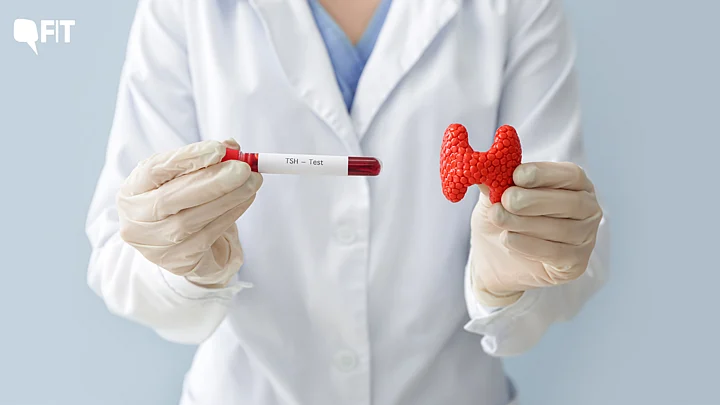Thyroid disorders impact millions around the world each year. They often present subtle symptoms that may not be immediately evident, going undiagnosed.
The two most common thyroid disorders are hypothyroidism (underactive thyroid) and hyperthyroidism (overactive thyroid).
What Is Hypothyroidism?
Hypothyroidism occurs when the thyroid gland fails to produce sufficient thyroid hormones.
With low thyroid hormone levels, one might have symptoms such as:
Gradual weight gain
Constipation
Irregular menstrual cycles in women
Hair loss from the scalp
Dryness
Mild depression
Many individuals experiencing these symptoms may not realise that they are related to a thyroid problem. Without early testing and diagnosis, the condition can go undetected.
In the case of children, it becomes even more crucial to detect hypothyroidism early, especially in newborns, to prevent severe impairments in their mental and physical growth.
Universal newborn screening programmes have been established to identify hypothyroidism at birth, allowing for the prompt introduction of thyroxine treatment and preventing potential growth retardation.
What Is Hyperthyroidism?
Characterised by an overactive thyroid, hyperthyroidism typically manifests with more noticeable and pronounced symptoms, including:
Weight loss
General malaise
Hand tremors
Increased bowel movements
Irritability
It is crucial to undergo testing as soon as thyroiditis is suspected in order to detect the disease early and initiate prompt treatment.
Diagnosis And Treatment
Various symptoms of thyroid disorders are nonspecific, meaning they can be attributed to other conditions, leading to misdiagnosis or delayed diagnosis.
To facilitate early detection, one should get screened for tests such as T4 and TSH, which help determine if a patient is hypothyroid.
Once a diagnosis is confirmed, healthcare professionals can prescribe appropriate medications, such as synthetic thyroid hormones for hypothyroidism, antithyroid medications and beta-blockers for hyperthyroidism.
These medications help restore the balance of thyroid hormones in the body, alleviating symptoms and improving overall well-being.
How Lifestyle Changes Help
In addition to medication, lifestyle modifications can also play a crucial role in managing thyroid disorders.
For example, maintaining a healthy diet and engaging in regular exercise can support overall thyroid health. Certain dietary considerations, such as avoiding excessive iodine intake or ensuring sufficient selenium and zinc intake may also be recommended depending on the specific condition.
Regular monitoring of thyroid hormone levels is another important aspect of managing thyroid disorders. By monitoring hormone levels through periodic blood tests, doctors can ensure that the treatment is effective and make any necessary adjustments.
In hypothyroidism, the lack of thyroid hormones can increase the risk of heart disease, high blood pressure, and adverse effects during pregnancy, while untreated hyperthyroidism can result in heart complications, weakened bones, muscle weakness, and eye problems.
Many thyroid conditions, if managed properly, can be effectively controlled, allowing individuals to lead a normal and active life.
In some cases, early detection of thyroid disorders can even help identify underlying conditions or diseases. The thyroid gland is intricately connected to various bodily functions, and abnormalities in its functioning can be a sign of an underlying problem.
Taking proactive measures to detect and treat thyroid disorders ultimately promotes long-term health and supports individuals in leading active and fulfilling lives.
(Dr Harish Kumar is a Clinical Professor, and Head, Centre for Endocrinology and Diabetes, Amrita Hospital, Kochi.)

